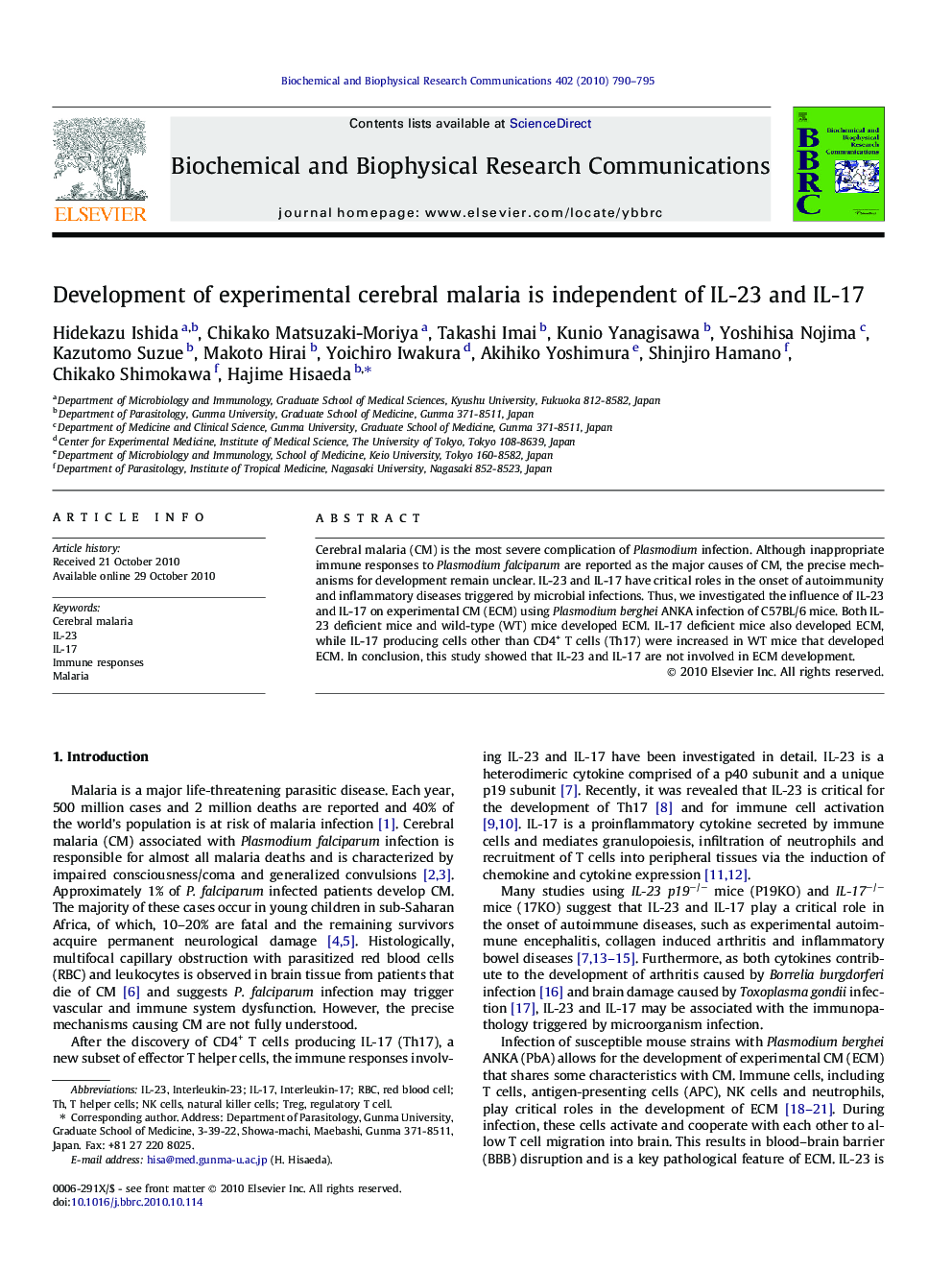| Article ID | Journal | Published Year | Pages | File Type |
|---|---|---|---|---|
| 1930969 | Biochemical and Biophysical Research Communications | 2010 | 6 Pages |
Cerebral malaria (CM) is the most severe complication of Plasmodium infection. Although inappropriate immune responses to Plasmodium falciparum are reported as the major causes of CM, the precise mechanisms for development remain unclear. IL-23 and IL-17 have critical roles in the onset of autoimmunity and inflammatory diseases triggered by microbial infections. Thus, we investigated the influence of IL-23 and IL-17 on experimental CM (ECM) using Plasmodium berghei ANKA infection of C57BL/6 mice. Both IL-23 deficient mice and wild-type (WT) mice developed ECM. IL-17 deficient mice also developed ECM, while IL-17 producing cells other than CD4+ T cells (Th17) were increased in WT mice that developed ECM. In conclusion, this study showed that IL-23 and IL-17 are not involved in ECM development.
Research highlights► IL-23 deficient mice developed ECM. ► Impairment of IL-17 did not influence ECM development. ► IL-23 and IL-17 are not involved in ECM development.
